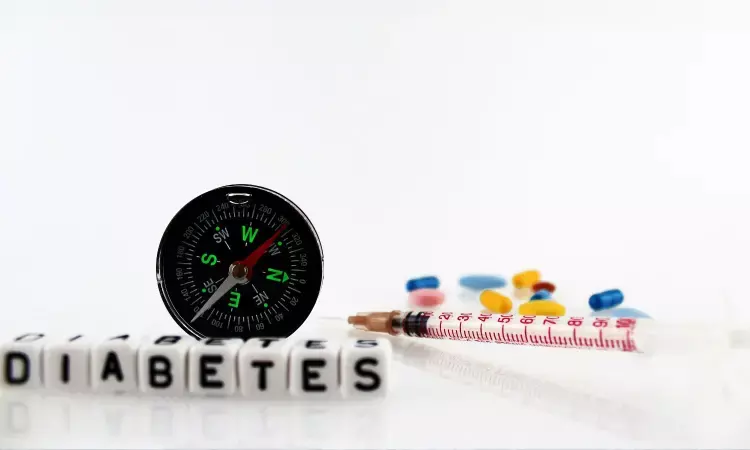- Home
- Medical news & Guidelines
- Anesthesiology
- Cardiology and CTVS
- Critical Care
- Dentistry
- Dermatology
- Diabetes and Endocrinology
- ENT
- Gastroenterology
- Medicine
- Nephrology
- Neurology
- Obstretics-Gynaecology
- Oncology
- Ophthalmology
- Orthopaedics
- Pediatrics-Neonatology
- Psychiatry
- Pulmonology
- Radiology
- Surgery
- Urology
- Laboratory Medicine
- Diet
- Nursing
- Paramedical
- Physiotherapy
- Health news
- Fact Check
- Bone Health Fact Check
- Brain Health Fact Check
- Cancer Related Fact Check
- Child Care Fact Check
- Dental and oral health fact check
- Diabetes and metabolic health fact check
- Diet and Nutrition Fact Check
- Eye and ENT Care Fact Check
- Fitness fact check
- Gut health fact check
- Heart health fact check
- Kidney health fact check
- Medical education fact check
- Men's health fact check
- Respiratory fact check
- Skin and hair care fact check
- Vaccine and Immunization fact check
- Women's health fact check
- AYUSH
- State News
- Andaman and Nicobar Islands
- Andhra Pradesh
- Arunachal Pradesh
- Assam
- Bihar
- Chandigarh
- Chattisgarh
- Dadra and Nagar Haveli
- Daman and Diu
- Delhi
- Goa
- Gujarat
- Haryana
- Himachal Pradesh
- Jammu & Kashmir
- Jharkhand
- Karnataka
- Kerala
- Ladakh
- Lakshadweep
- Madhya Pradesh
- Maharashtra
- Manipur
- Meghalaya
- Mizoram
- Nagaland
- Odisha
- Puducherry
- Punjab
- Rajasthan
- Sikkim
- Tamil Nadu
- Telangana
- Tripura
- Uttar Pradesh
- Uttrakhand
- West Bengal
- Medical Education
- Industry
Physical exercise halts progression of Type 1 diabetes in kids with diabetes-related autoantibodies

South Florida: A study published in Diabetes Care has addressed the role of physical exercises in children with multiple diabetes-related autoantibodies in the age group of 5-15 years in reducing the progression of type 1 diabetes.
In this study, the team investigated the physical activity and its association with the development of islet autoimmunity and type 1 diabetes in genetically at-risk children.
As part of the TEDDY study, an annual assessment of activity using accelerometry was done from the age of five. Researchers in the present study assessed the association between time spent performing physical activity daily and the appearance of one or several autoantibodies and progression to type 1 diabetes in three risk groups.
The risk groups are:
- 3,869 islet autoantibody (IA)-negative children. One hundred fifty-seven became single IA positive.
- 302 single IA-positive children. Seventy-three became multiple-IA positive.
- Of two hundred ninety-four multiple IA-positive children, 148 developed type 1 diabetes.
The study results are:
- There was no significant association in risk group 1 or risk group 2.
- There was a significant association in risk group 3 with a hazard ratio of 0.920 per 10-min increase, mainly when glutamate decarboxylase autoantibody was the first autoantibody with a hazard ratio of 0.883 per 10-min increase.
They said that the more daily minutes spent in physical activity, moderate/vigorous, the less the risk of progression to T1D in children aged 5-15 years with multiple IAs.
Further reading:
Liu X, Johnson SB, Lynch KF, Cordan K, Pate R, Butterworth MD, Lernmark Å, Hagopian WA, Rewers MJ, McIndoe RA, Toppari J, Ziegler AG, Akolkar B, Krischer JP, Yang J; TEDDY Study Group. Physical Activity and the Development of Islet Autoimmunity and Type 1 Diabetes in 5-15-Year-Old Children Followed in the TEDDY Study. Diabetes Care. 2023 May 4:dc230036. Doi: 10.2337/dc23-0036.
BDS, MDS in Periodontics and Implantology
Dr. Aditi Yadav is a BDS, MDS in Periodontics and Implantology. She has a clinical experience of 5 years as a laser dental surgeon. She also has a Diploma in clinical research and pharmacovigilance and is a Certified data scientist. She is currently working as a content developer in e-health services. Dr. Yadav has a keen interest in Medical Journalism and is actively involved in Medical Research writing.
Dr Kamal Kant Kohli-MBBS, DTCD- a chest specialist with more than 30 years of practice and a flair for writing clinical articles, Dr Kamal Kant Kohli joined Medical Dialogues as a Chief Editor of Medical News. Besides writing articles, as an editor, he proofreads and verifies all the medical content published on Medical Dialogues including those coming from journals, studies,medical conferences,guidelines etc. Email: drkohli@medicaldialogues.in. Contact no. 011-43720751


